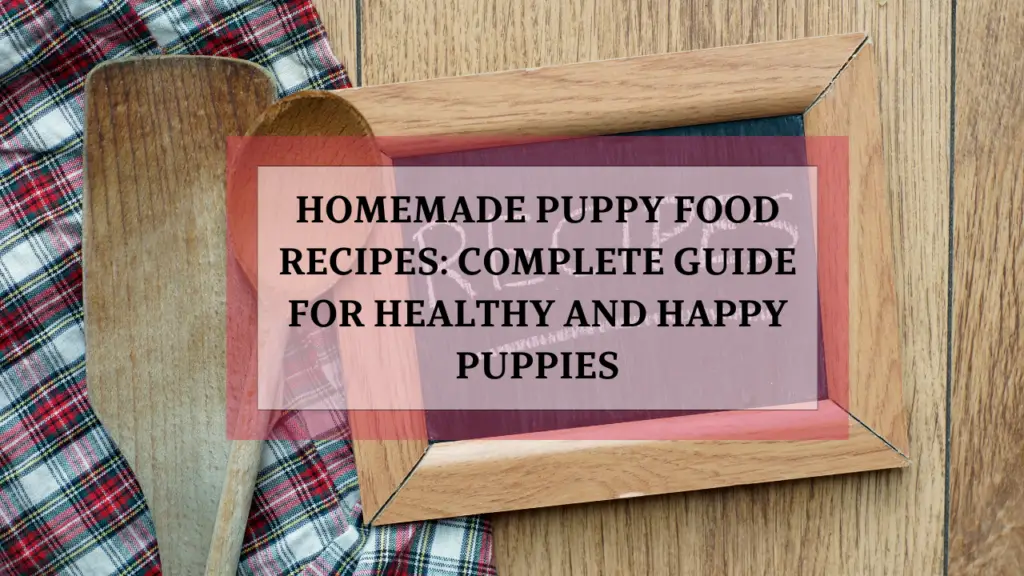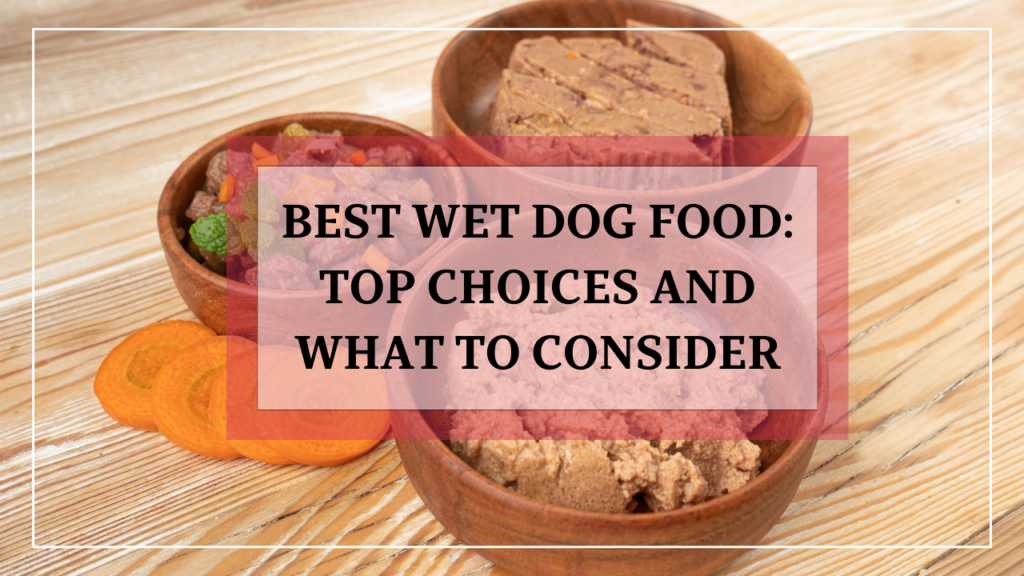Puppies grow quickly, and their nutrition plays a vital role in their development. Choosing the best puppy food ensures your furry friend grows into a strong, healthy adult. This comprehensive guide covers everything you need to know about selecting the right food, understanding nutritional requirements, and making informed decisions for your pup’s well-being.
Why Choosing the Right Puppy Food Matters
Puppies have unique nutritional needs that differ significantly from adult dogs. Feeding your puppy the right food sets the foundation for their overall health, helping to:
- Promote Healthy Growth: Puppies grow rapidly, and proper nutrition supports muscle, bone, and brain development.
- Boost Immunity: Nutrient-dense food enhances your puppy’s ability to fight off infections and diseases.
- Ensure Long-Term Health: High-quality puppy food reduces the risk of chronic health conditions later in life.
Differences Between Puppy Food and Adult Dog Food
Puppy food contains:
- Higher calories to fuel growth.
- More protein to build muscles.
- Increased DHA (an omega-3 fatty acid) for brain and eye development.
- Essential vitamins and minerals for bone health.
In contrast, adult dog food is formulated to maintain health without the extra nutrients required for growth. Feeding your puppy adult food too early can lead to nutrient deficiencies.
Nutritional Needs of Puppies
What Nutrients Do Puppies Need?
Puppies require a balanced diet to thrive. Essential nutrients include:
- Proteins: Vital for muscle and tissue development. Look for food with high-quality protein sources like chicken, beef, or fish.
- Fats: Provide energy and support a healthy coat. Healthy fats like omega-3 and omega-6 are crucial.
- Carbohydrates: Supply energy and aid digestion. Include whole grains like brown rice or oatmeal.
- Vitamins and Minerals: Key for bone strength, teeth health, and immune support. Calcium, phosphorus, and vitamin D are essential.
| Nutrient | Role | Sources |
|---|---|---|
| Protein | Muscle and tissue growth | Chicken, lamb, fish |
| Fats | Energy and skin health | Fish oil, flaxseed |
| Carbohydrates | Energy and digestion | Sweet potatoes, oats |
| Calcium | Strong bones and teeth | Bone meal, fortified foods |
How Do Puppy Nutritional Needs Change by Age?
- Neonatal Phase (0-4 weeks): Puppies rely solely on their mother’s milk.
- Weaning Phase (4-8 weeks): Gradual introduction to solid food.
- Growth Phase (8 weeks – 12 months): High-calorie, nutrient-dense food supports rapid development.
Why Puppy Food Is Different
Compared to adult dog food, puppy food is designed to meet the caloric and nutritional demands of growing puppies. For example, large-breed puppies need food with controlled calcium levels to prevent joint problems, while small breeds benefit from calorie-dense kibble to match their fast metabolism.
Types of Puppy Food: Pros and Cons
Dry Puppy Food (Kibble)
- Benefits:
- Affordable and easy to store.
- Helps reduce plaque and tartar buildup on teeth.
- Drawbacks:
- Lower moisture content may require ensuring your puppy drinks enough water.
- Some picky eaters might not prefer it.
Wet Puppy Food (Canned)
- Benefits:
- High moisture content helps keep puppies hydrated.
- Typically more appealing due to stronger aroma and taste.
- Drawbacks:
- More expensive than kibble.
- Shorter shelf life once opened.
Fresh or Homemade Puppy Food
- Benefits:
- Complete control over ingredients.
- Can tailor meals to specific dietary needs.
- Drawbacks:
- Time-consuming to prepare.
- Risk of nutritional imbalances without proper guidance.
| Type | Benefits | Drawbacks |
| Dry Kibble | Affordable, dental health benefits | May not appeal to picky eaters |
| Wet Food | High moisture, appealing taste | Expensive, short shelf life |
| Homemade | Customizable, fresh ingredients | Time-intensive, risk of imbalance |
How to Choose the Best Puppy Food for Your Pup
Reading and Understanding Labels
When selecting puppy food, check the label for:
- “Complete and Balanced” Statement: Indicates the food meets nutritional standards.
- Ingredients List: Look for high-quality proteins as the first ingredient.
- Guaranteed Analysis: Provides details on protein, fat, fiber, and moisture content.
Grain-Free vs. Grain-Inclusive Puppy Food
- Grain-Free Diets: Suitable for puppies with grain allergies but may lack some essential nutrients.
- Grain-Inclusive Diets: Contain whole grains like rice and barley, providing energy and fiber.
Considering Your Puppy’s Breed and Size
- Large Breeds: Need controlled calcium and phosphorus levels to avoid joint issues.
- Small Breeds: Require calorie-dense food to meet their high energy needs.
Addressing Specific Dietary Needs
- Food Allergies: Opt for limited-ingredient or hypoallergenic diets.
- Health Conditions: Consult your vet for tailored recommendations.
Best Puppy Food Brands in 2025
Top Dry Puppy Food Brands
- Hill’s Science Diet Puppy: High-quality ingredients with DHA for brain development.
- Royal Canin Puppy: Breed-specific formulas tailored to your puppy’s size and needs.
Best Wet Puppy Food Brands
- Blue Buffalo Homestyle Recipe Puppy: Packed with real meat and essential nutrients.
- Purina Pro Plan Puppy: Balanced nutrition with added probiotics for digestive health.
Best for Specific Needs
- Grain-Free: Taste of the Wild Puppy.
- High-Protein: Orijen Puppy.
- Affordable Options: Pedigree Puppy Food.
Common Puppy Feeding Questions Answered
How Much Should You Feed a Puppy?
Portions vary by age, weight, and breed. Use the feeding guidelines on the package as a starting point and adjust as needed. Overfeeding can lead to obesity, while underfeeding stunts growth.
How Often Should Puppies Eat?
- 4-12 weeks: 4 meals per day.
- 3-6 months: 3 meals per day.
- 6-12 months: 2 meals per day.
Can You Switch Puppy Food Brands?
Transition gradually over 7-10 days by mixing increasing amounts of the new food with the old to avoid digestive upset.
What Human Foods Are Safe for Puppies?
Safe Foods: Cooked chicken, carrots, plain rice.
Unsafe Foods: Chocolate, grapes, onions.
Conclusion
Feeding your puppy the right food is one of the most important aspects of their care. The best puppy food supports healthy growth, boosts immunity, and sets the stage for a long, happy life. Consult your veterinarian for specific advice tailored to your puppy’s needs, and remember—a well-fed puppy is a happy puppy!



